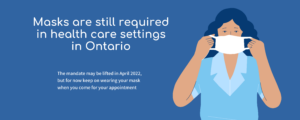What Is Your Anxiety Pointing At?

We’ve all seen it before. Someone parks in the handicapped zone. We see them leisurely walk out of their car towards a store. Some of us may wonder how that person is affected. Others might think there’s nothing wrong with them. Some conditions are not always necessarily visible. In fact, many aren’t. Often considered to be an invisible condition, mental health issues aren’t always apparent. Did you know that this past week was mental health week? If yes, then maybe you listened to a soundbite on the radio, or you read a few lines on the web. In any case, mental health issues are often considered to be an invisible condition, given that symptoms don’t necessarily show on the outside.
It’s also important to mention that not all mental health conditions are created equal. Symptoms can vary from mild to severe, disabling some, but not all. This could explain some people’s difficulties in seeing them, as some people are more functional than others. Today, we’re going to focus on one mental health issue that seems to be more prevalent in our busy times: anxiety.
Maybe it’s happened to you, or a family member you know. Feelings of panic, fear, uneasiness, dread, the thought of losing control/going crazy, shortness of breath, heart palpitations, muscle tensions (tightness in the chest), not being able to be still/calm, nausea, numb feet/hands, to name a few. All of these symptoms, are generally false alarms, as our bodies get activated, sometimes for no apparent reason. Don’t worry. It doesn’t have anything to do with how our parents raised us, our character, or a lack of strength. In fact, anxiety is attributed to changes in the brain, as well as environmental stresses.
One of the first questions I ask clients with regards to their symptoms is what is your anxiety pointing at? Often times, we can take on a lot in our busy lives. Many people report experiencing stress that can become anxiety if left untreated. This is especially so with work, being that many of us find it challenging to detach from work once we get home. What with responsibilities becoming increasingly higher, the lack of time in accomplishing given tasks, it’s only normal that our bodies react if stress becomes the norm rather than the exception.
Is there anything to be done with symptoms of anxiety? The answer is yes. If our bodies get heightened, it stands to reason that the opposite would help. Therefore, when we experience anxiety symptoms, it becomes important to help the body to relax. Various techniques can be explored in a therapeutic setting, in order to get the most help. There are ways which can help the body relax in a matter of seconds, to a matter of minutes. Most therapists will only be too happy to help their clients equip themselves with a variety of tools, be it through self-talk, breathwork, visualisation, or body-centered methods.
There are other ways in which to help with regards to reducing anxiety. One of which is to divert one’s self from focusing on the anxiety. The 1-2-3-4-5 method is good for this. It involves looking progressively for 1-2-3… items in your immediate environment. Creative methods involving the use of our hands and/or other senses are also ways in which to promote more of a focus outside of ourselves, and less on what’s going on inside. Mindfully eating, cooking, singing, petting an animal, exercising, and woodworking, are examples of this. By focusing less on the anxiety, we reduce its hold on us, such that it becomes more manageable and/or disappears altogether.
While there are other forms of anxiety which present more severe symptoms, such as PTSD, social anxiety, panic disorder, and the like, it’s important to understand that one in four Canadians will have an anxiety disorder of some sort in their lifetime. Given that anxiety is the number one mental health illness in Canada, chances are, you may know someone afflicted by it. Or it might even be you. In either case, it’s important to know that there are options, as mentioned above. And that reaching out to a qualified therapist can be a first step to better life. Isn’t it time you reclaimed yourself?
References:
http://www.webmd.com/anxiety-panic/guide/mental-health-anxiety-disorders
https://mindyourmind.ca/expression/blog/statistics-canada-releases-mental-health-survey-results

